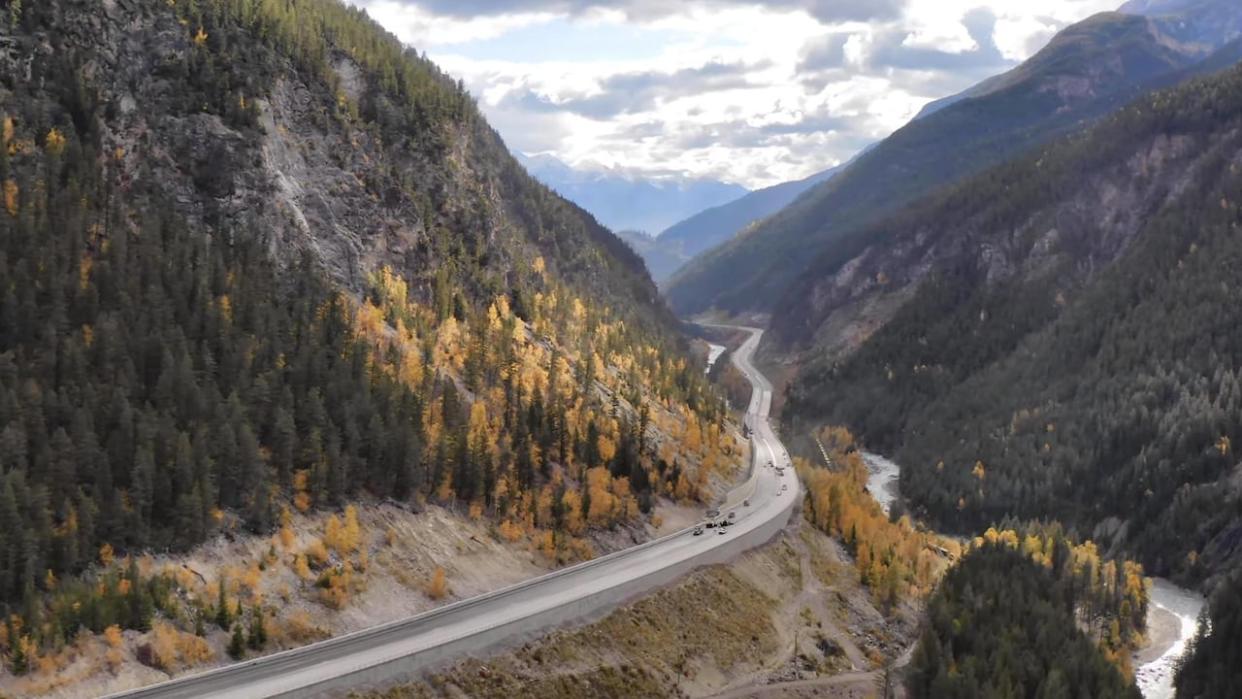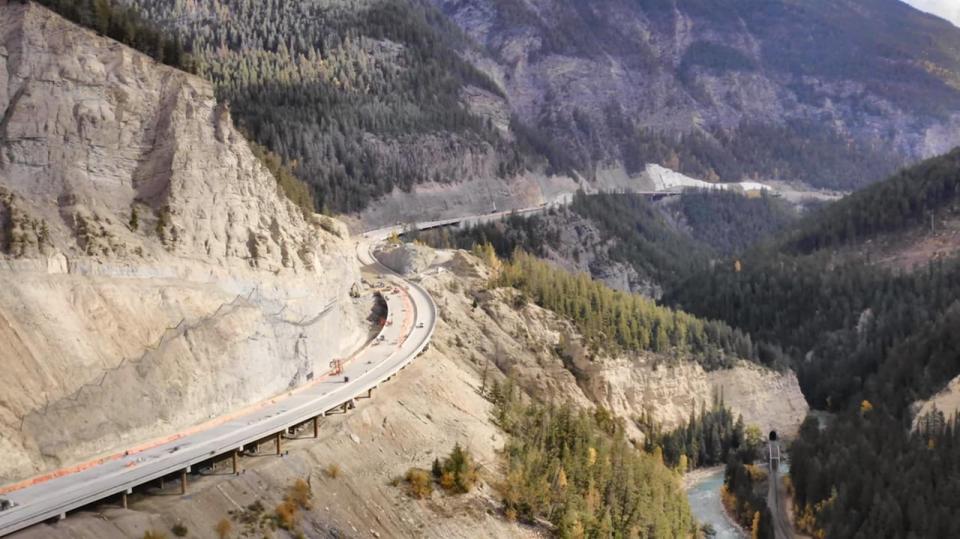Construction nears completion on Kicking Horse Canyon near Golden, B.C.

Major safety upgrades to the Kicking Horse Canyon project near Golden, B.C., are almost complete after years of highway closures and delays.
The 4.8-kilometre stretch of highway between Golden, B.C., and Alberta's Castle Junction has undergone major changes in the past two and a half years.
It converts the last two-lane section of the Trans-Canada Highway, about 780 kilometres east of Vancouver, into four lanes.
The province held a press conference Thursday to mark the occasion, stating that the $601-million project is almost done.
"We've taken the twists and turns out of this section of roadway and made it tremendously safer for all of those who are travelling through here. [We've] made the highway more reliable," said Rob Fleming, B.C.'s Minister of Transportation and Infrastructure.
Safety a top priority, province says
Fleming adds that the highway has four new bridges, nine new viaducts and new paving, making it smoother and safer.
Mike Wilson, detachment commander for the Golden RCMP, agrees.
"This highway is a conduit for the entire country to funnel through here … it's a lot safer for everybody that uses the highway," he said.

Transportation and Infrastructure Minister Rob Fleming says the highway, pictured here in a screenshot from a drone video shared by the province, has four new bridges, nine new viaducts and new paving. (Transportation Investment Corporation/YouTube)
The province of B.C. explained in a press release that while there will be no more extended closures of the highway, there will be construction delays and night-time closures into November.
But Fleming states the years-long project is a worthy investment.
He said "$27 billion a year worth of trade moves through this corridor.
"When there's a crash, when there's a slide, when there's some kind of disruption, a lot of economic activity is disrupted."
Large workforce to bring project to completion
Shuswap Band Elder Dean Martin opened Thursday's press conference with a story and a prayer.
He said his family has been talking about the twinning of the Kicking Horse Canyon for more than 30 years.
"What's happened today and what's going on [now] is just a great thing to see," he said.

The final phase of the Kicking Horse Canyon project — pictured here in a file photo — to widen and upgrade the section of Highway 1 east of Golden, B.C., is expected to be complete this winter. (Government of B.C.)
The Shuswap Band is a member of the Secwépemc Nation, whose Traditional Territory spans approximately 180,000 square kilometres over B.C. and Alberta. According to the the Shuswap Band, its primary community is located on its reserve near Invermere, about 100 kilometres south of Golden.
"By keeping health and safety at the forefront, we understand that is so important … what we do together is really important," said Martin.
Fleming explained that 84 per cent of the workforce on the project have been from B.C., with more than one third of the workers living within 100 kilometres of the job site.
"Nine per cent of workers on this job were women in trades — double the provincial average. Fourteen per cent of the workforce were Indigenous, which is also more than double the norm on projects like this," he said.
He commended everyone for working in all kinds of conditions.
"The seasons they had to work in — we had fires, we had wickedly hot summers, very early winters and very cold, long winters, and workers got through all of that and did very difficult work," said Fleming.
The province says preparations are being made to transition traffic onto the new highway and bridges by the beginning of December 2023. Final work on the project is expected to wrap up come spring 2024.


